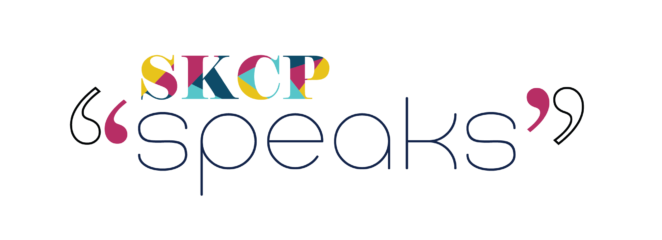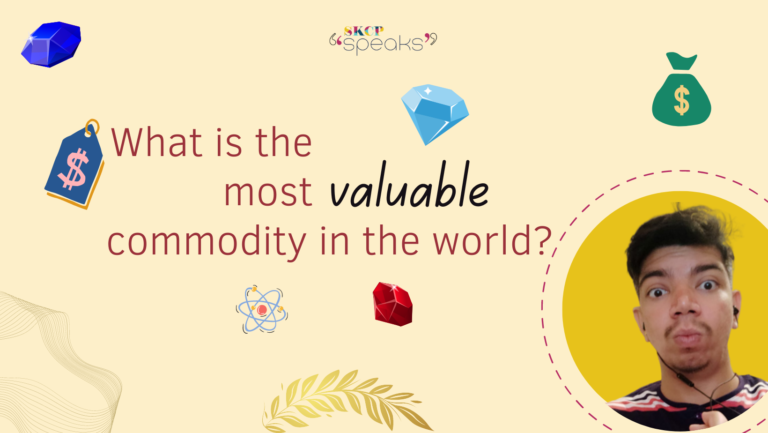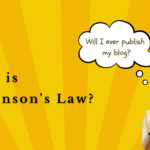Great! Now that I have your attention let me ask you – What is the most valuable commodity in the world?
Gold, Diamond, Platinum? Some might say anti-matter. Others might say time or money.
But I think none of them are as valuable as your “attention”. The most valuable commodity in the world is your “Attention”.
Especially as the world drowns in a deluge of information and data, the premium price of your Attention keeps rising exponentially. Everybody is contesting for a slice of your attention. And there is only so much that you can give.
Just ask the Global Advertising Industry worth over $ 590.3 Billion, the foundation of which is set on being able to capture your “attention”. And so is the business of journalism, politics, and all the streaming services and social media platforms.
All of them at the core of their businesses are built on being able to capture your attention!
Why is Attention so Precious?
Attention is a scarce commodity.
Research from a range of disciplines including psychology, cognitive science, neuroscience, and even economics, suggests that humans have limited cognitive resources that can be used at any given time.
When resources are allocated to one activity, the resources available for other activities are limited.
Consider your attention, right now. It’s going into reading this article. No matter how brilliant at multitasking you are, you can’t be focusing on a lot of other stuff at the moment.
As Matthew Crawford said,
“Attention is a resource—a person has only so much of it.”
But the demand for this commodity is intense!
Psychologist and economist Herbert A. Simon very well explains-
“In an information-rich world, the wealth of information means a dearth of something else: a scarcity of whatever it is that information consumes. What information consumes is rather obvious: it consumes the attention of its recipients. Hence a wealth of information creates a poverty of attention. “
As content grows, being increasingly abundant and immediately available, attention becomes the limited resource that obstructs the consumption of this information. The receptivity of information is also limited.
Brands, businesses, and public entities all over the globe engage in a battle for the finite attention of their consumers.
But as an individual, there is only so much attention you can give.
That’s the reason we call it- “Paying” Attention.
Paying attention to one thing means not paying attention to something else. Every notification on your phone, email, social media posts… every social interaction, recreational activity, and family time, compete for a slice of your attention.
And thus, as the primary basic economic lesson says-
Insane Demand + Limited Supply = Exponential Value
My Attention is Valuable? So What!?
We established Lesson No 1- Your Attention is Incredibly Valuable.
We have established this. But why should you care? And why do others care if they can get your attention?
Everything we experience is mediated by our attention. It’s the lens we see the world through. It makes our reality, All we are is a mix of our experiences and memories. And this is embodied by our attention.
Because being able to capture attention also grants the power to influence both the thoughts and actions of those paying it.Okay, now let’s think of a ‘Talking Popcorn’. Here’s an image to help you out.
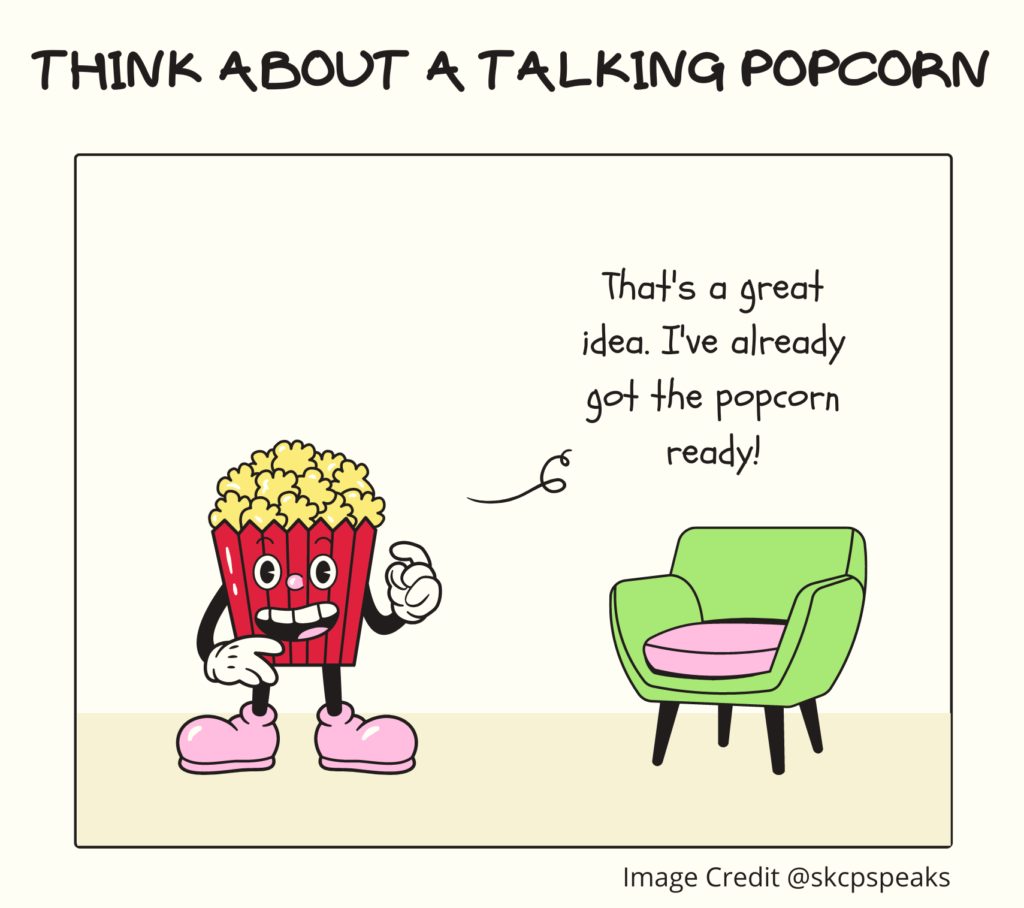
When you started reading, you could not have guessed that ‘Talking Popcorn’ is what you would be thinking about. Maybe I dropped a hint earlier in the article? Did you just think of scrolling up to check it out? Maybe some of the readers did.
I could influence your thoughts and actions to imagine a ‘talking Popcorn’ because of the attention you gave me. At a bigger, deeper scale, someone better at this than me, someone who “enthralls” the audience is indeed temporarily making the audience their “thralls” ie. slaves – ‘A state of being in someone’s power.’
You might think that the very act of paying attention is voluntary. But often it is not completely so. A certain amount of compulsion is involved in a lot of what you do. “I need to check my Instagram”, “You need to watch that show” or “You must check out that game.” Each of these activities takes a physical as well as mental effort.
These experiences shape our lives. And thus the most important choice in life is what you pay attention to. Because by paying attention you hand over the power to shape your thoughts, your experiences, and your potential actions.
It’s a choice we make continuously and often subconsciously, in an endless series of moments. And this choice is incredibly valuable. Much more valuable than any gold, silver, or diamond can be.
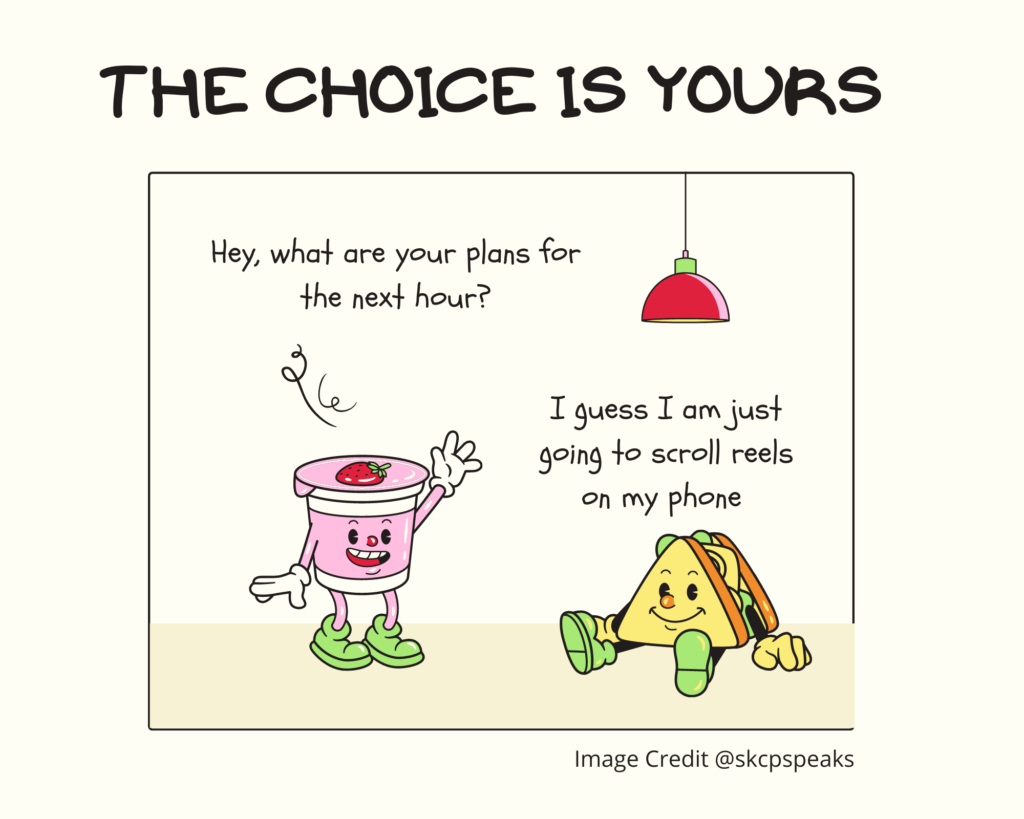
Pay Attention to Where you Pay Attention.
Attention is a critical skill we take for granted. It allows information to be filtered. It helps extract only the most important, relevant information while the irrelevant details can be left out.
But paying attention to one thing means neglecting something else. So in this attention-hungry environment, be mindful of what you pay attention to.
The attention you need to give yourself, your skills, your family, your growth, your satisfaction, your contentment, and your health has to compete with the demand for attention from sources that are financially motivated and deploy well-researched psychological ploys to target your weaknesses.
In this era of an overabundance of information sources seeking to consume your attention, it is crucial to allocate this scarce and extremely valuable resource efficiently.
I don’t mean to say- You sit by yourself and do nothing. Rather as Mr. Goldhaber, a theoretical physicist who predicted the internet age says- “It is instead asking how do you allocate the attention you have in more focused, intentional ways?”
Some of this requires personal and critical introspection, re-evaluating our habits and hobbies, and understanding what we reinforce.
Where you pay attention can mean a lot. It can mean healthy relationships, a satisfactory life, and fulfillment. You will manage your time a lot better.
As I leave you with a favourite maxim, from the writer Howard Rheingold:
“Attention is a limited resource, so pay attention to where you pay attention.”
Paying attention is a choice. Use it wisely. If you don’t wield that choice, the environment wields it for you.

Concluding Remarks
We can explore how our attention is generated, manipulated, valued, or degraded.
Usually, attention is simply a lens to read the events of the moment. But it can also compel us toward a better understanding of how our minds work. It can help us learn how we value our time or the time of others.
Maybe, just by being aware of its presence, we can begin to direct it toward ideas, people, and causes that are worthy of our precious resource. What’s important is to shift from thoughtless reactivity to proactive choice.
After all, to Create is Divine, but to Curate is Human.
Because when you pay attention to things that truly matter I believe you become the best version of yourself and can sometimes manage to do the unimaginable.
